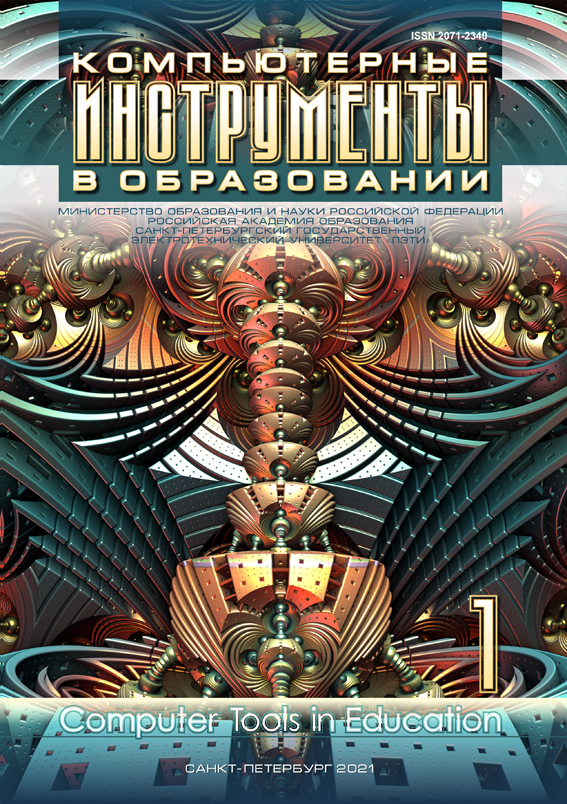Онтология дискретной математики в образовании
Аннотация
В настоящее время онтологии широко используются в информатике для формализованного представления знаний о различных предметных областях. Разработаны и успешно применяются специальные формальные языки описания онтологий, которые позволяют описывать онтологии в форме, доступной для использования как человеком, так и компьютером. Среди разнообразных вариантов использования онтологий особое место занимает применение онтологий в образовании, поскольку систематизация и упорядочение знаний, будучи главным конкурентным преимуществом онтологического подхода, одновременно является одной из главных целей образовательного процесса. В статье предложены оригинальные приёмы построения онтологий для использования в образовательном процессе высшей школы. Центральной идеей является построение фасетных, иначе говоря, — многогранных онтологий, в которых различные аспекты одной и той же предметной области описываются концептуально схожими, но синтаксически различными средствами. Такой подход обеспечивает более точное и семантически адекватное описание при сохранении известной лаконичности и наглядности обозначений. В качестве языка описания онтологий предлагается использовать унифицированный язык моделирования UML 2, прекрасно зарекомендовавший себя при формализации во многих случаях. Изложение ведётся на примере построения онтологии дискретной математики, причём приводимые в статье диаграммы онтологий внедрены в учебные процессы Академического и Политехнического университетов Санкт-Петербурга.
Литература
T. Hofweber, “Logic and Ontology,” E. N. Zalta ed., in The Stanford Encyclopedia of Philosophy, Sum. 2020. [Online]. Available: https://plato.stanford.edu/archives/sum2020/entries/logic-ontology/
T. R. Gruber, “The role of common ontology in achieving sharable, reusable knowledge bases,” in Proc. of the Second International Conference Principles of Knowledge Representation and Reasoning, vol. 91, 1991, pp. 601–602.
V. A. Lapshin, “Ontologii v informatsionnykh sistemakh” [Ontologies in information systems], Moscow: Nauchnyi mir, 2010.[Online] (in Russian). Available: http://isdwiki.rsuh.ru/moodle/pluginfile.php/128/ course/section/36/bookLapshin.pdf
“Metody inzhenerii znanii” [Knowledge Engineering Techniques], in Upravlenie znaniyami. [Online] (in Russian). Available: https://sites.google.com/site/upravlenieznaniami/inzeneria-znanij/ sredstva-inzenerii-znanij
National Center for Biotechnology Information, “The Taxonomy Database,” in www.ncbi.nlm.nih.gov. [Online]. Available: https://www.ncbi.nlm.nih.gov/taxonomy/
S. Decker et al., “The semantic web: The roles of XML and RDF,” IEEE Internet computing, vol. 4, no. 5, pp. 63–73, 2000. doi: 10.1109/4236.877487
B. McBride, The resource description framework (RDF) and its vocabulary description language RDFS, Berlin, Heidelberg: Springer, pp. 51–65, 2004.
D. L. McGuinness et al., “OWL web ontology language overview, W3C recommendation,” in W3C, 10 feb. 2004. [Online]. Available: https://www.w3.org/TR/2004/REC-owl-features-20040210
S. Cranefield and M. K. Purvis, UML as an ontology modeling language, Dunedin, New Zealand: Uneversity of Otago, 1999.
F. A. Novikov, Discrete Mathematics: A Textbook for High Schools, St. Petersburg: Piter, 2017 (in Russian).
F. A. Novikov, “Discrete mathematics for programmers,” in Professional’naya razrabotka programm- nykh sistem. [Online] (in Russian). Available: http://uml3.ru/index.html
I. Schinz et al., “The Rhapsody UML verification environment,” in Proc. of the Second International Conference on Software Engineering and Formal Methods, SEFM, 2004 – IEEE, 2004. pp. 174–183.
Материал публикуется под лицензией:








